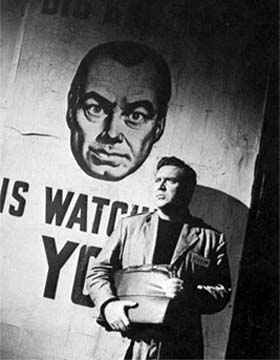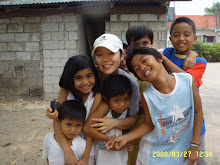 My choice.
My choice. This book had several qutoes that were essential and these were one of them.
WAR IS PEACE
FREEDOM IS SLAVERY
IGNORANCE IS STRENGTH (1984 - p.19)
These words were the official slogans of the Party, and were inscribed in massive letters in the Ministry of Truth, as Winston observed in page 19. Because it was introduced so early in the novel, this served as mt first introduction to the idea of doublethink. What the Party was doing was weakening the independence and strength of individuals’ minds. They were forcing them to live in a constant state of propaganda-induced fear, and the Party was able to force its subjects to accept anything it decrees, even if it is entirely illogical. For instance, the Ministry of Peace is in charge of waging war, the Ministry of Love is in charge of political torture, and the Ministry of Truth is in charge of changing history books to reflect the Party’s ideology.
However, it is possible for the Party to state that“War Is Peace” because having an enemy keeps the people of Oceania united and enthusiastic. “Freedom Is Slavery” because, according to the Party, the man who is independent is destined to fail in life. By the same purpose, “Slavery Is Freedom,” because the man subjected to this will is free from danger and want. “Ignorance Is Strength” because the inability of the people to recognize these contradictions cements the power of the authoritarian regime.








